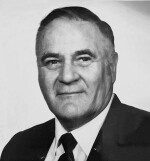
Richard (Dick) Nelson, SPE, passed away 12 September 2024 in Ketchum, Idaho, at the age of 95. After receiving a PhD in chemistry from the University of Washington in 1954, he moved to California and started at Shell’s Martinez refinery. He also worked at Shell Development Company’s Emeryville Central Research Laboratory before moving to the company’s head office in Manhattan in late 1962. In 1965, he moved to the Union New Jersey refinery before being transferred back to Emeryville in 1968. He remained at Emeryville becoming manager of surfactant research until 1972 when the facility was slated for closure as part of Shell’s decision to centralize US corporate offices in Houston.
Nelson’s transfer to exploration and production research was a fruitful transition. Utilizing the theoretical understanding of surfactant and oil chemistry he gained from his early career he published fundamental SPE papers that advanced the technology of chemical enhanced oil recovery (CEOR). Nelson focused on research that explained the importance of phase behavior and utilizing a salinity gradient in a chemical flood. Further research showed the importance of performing a final chemical formulation design with live crude oil (containing native solution gas) rather than relying on experimental results with dead (gas-free) stock‑tank oil.
His greatest contribution was realizing that alkaline-enhanced oil recovery floods are fatally flawed due to the hydrophobic nature of the petroleum soaps that are formed, and the fact that alkali imparts significant salinity to injection brine. He realized that this situation can be corrected by including a small amount of hydrophilic co‑surfactant along with the alkali. He received a patent for this invention, and the discovery led to the commercial application of ASP (alkali-surfactant-polymer) flooding. ASP floods are currently being operated in Oman, Canada, Argentina, and India based on his invention. For these contributions he was awarded the Pioneer Award for Enhanced Oil Recovery in 2000.

